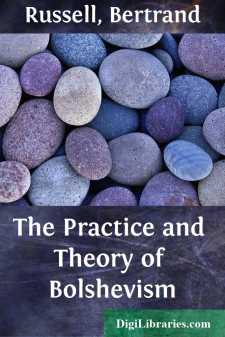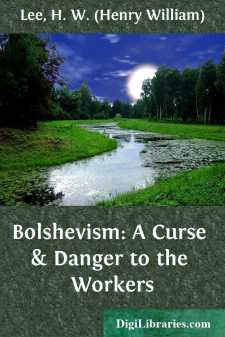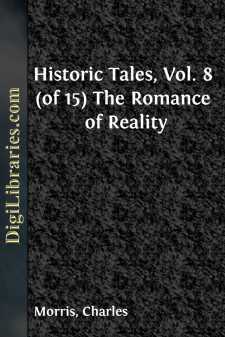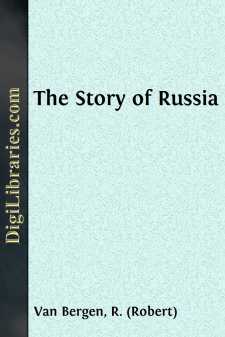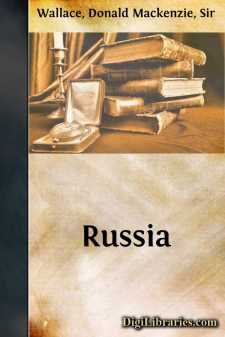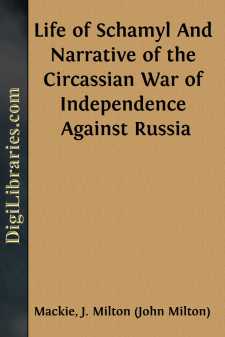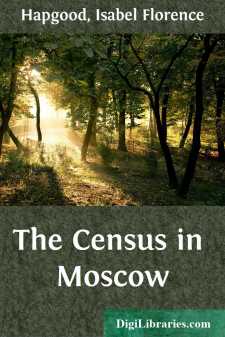History
- Africa 30
- Americas (North Central South West Indies) 50
- Ancient 68
- Asia 58
- Australia & New Zealand 8
- Canada 41
- Caribbean & West Indies 1
- Civilization 20
- Eastern Europe
- Europe 310
- Expeditions & Discoveries 60
- General 77
- Historical Geography 1
- Jewish 9
- Latin America 3
- Medieval 8
- Middle East 13
- Military 248
- Revolutionary 8
- Study & Teaching 5
- United States 353
- Western Europe 56
- World 13
Eastern Europe Books
Sort by:
by:
John Spargo
CHAPTER I THE HISTORICAL BACKGROUND I For almost a full century Russia has been the theater of a great revolutionary movement. In the light of Russian history we read with cynical amusement that in 1848, when all Europe was in a revolutionary ferment, a German economist confidently predicted that revolutionary agitation could not live in the peculiar soil of Russian civilization. August Franz von...
more...
by:
Bertrand Russell
I To understand Bolshevism it is not sufficient to know facts; it is necessary also to enter with sympathy or imagination into a new spirit. The chief thing that the Bolsheviks have done is to create a hope, or at any rate to make strong and widespread a hope which was formerly confined to a few. This aspect of the movement is as easy to grasp at a distance as it is in Russia—perhaps even easier,...
more...
FOREWORD BY WILL THORNE, M.P. I have been asked to write a brief introduction to the pamphlet which my old friend and comrade H.W. Lee has written on the undercurrent of Bolshevist propaganda going on in this country, of which the recent unauthorised strike outbreaks are outward and visible signs. I do this gladly. Our comrade Lee, through being long associated with the Social-Democratic Federation as...
more...
by:
Jacob Abbott
CHAPTER I. 1676-1684 Parentage of Peter—His father's double marriage—Death of his father—The princesses—Their places of seclusion—Theodore and John—Sophia uneasy in the convent—Her request—Her probable motives—Her success—Increase of her influence—Jealousies—Parties formed—The imperial guards—Their character and influence—Dangers—Sophia and the...
more...
by:
Charles Morris
Far over the eastern half of Europe extends a vast and mighty plain, spreading thousands of miles to the north and south, to the east and west, in the north a land of forests, in the south and east a region of treeless levels. Here stretches the Black Land, whose deep dark soil is fit for endless harvests; here are the arable steppes, a vast fertile prairie land, and here again the barren steppes, fit...
more...
I—THE REALM OF THE CZAR. When we think of our country, we feel proud of it for other and better reasons than its great size. We know how its extent compares with that of other nations; we know that the United States covers an area almost equal to that of Europe, and, more favored than that Grand Division, is situated on the two great highways of commerce, the Atlantic and Pacific Oceans. Europe is as...
more...
CHAPTER I TRAVELLING IN RUSSIA Railways—State Interference—River Communications—Russian "Grand Tour"—The Volga—Kazan—Zhigulinskiya Gori—Finns and Tartars—The Don—Difficulties of Navigation—Discomforts—Rats—Hotels and Their Peculiar Customs—Roads—Hibernian Phraseology Explained—Bridges—Posting—A Tarantass—Requisites for Travelling—Travelling in...
more...
THE LAND OF SCHAMYL. Circassia—under which name the country occupied by a great number of tribes of which the Circassians are one, is best known to foreigners—lies in the Caucasus, a range of mountains which, running in the direction between north-west and south-east, extends from the shores of the Black Sea to those of the Caspian, and divides by its wall of rock the two continents of Europe and...
more...
The object of a census is scientific. A census is a sociological investigation. And the object of the science of sociology is the happiness of the people. This science and its methods differ sharply from all other sciences. Its peculiarity lies in this, that sociological investigations are not conducted by learned men in their cabinets, observatories and laboratories, but by two thousand people...
more...
The object of a census is scientific. A census is a sociological investigation. And the object of the science of sociology is the happiness of the people. This science and its methods differ sharply from all other sciences. Its peculiarity lies in this, that sociological investigations are not conducted by learned men in their cabinets, observatories and laboratories, but by two thousand people...
more...



